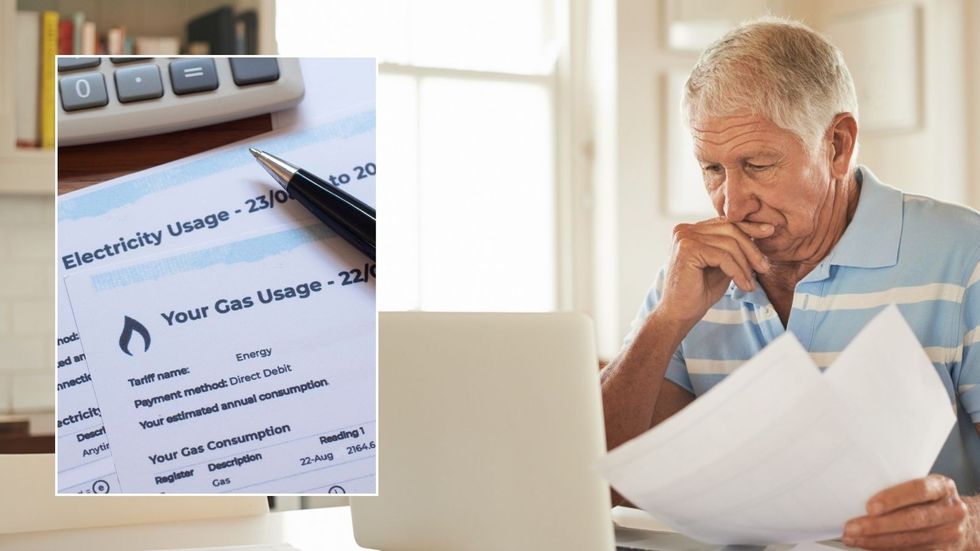Energy bills could fall by £200 under new price cap shake-up

GBNEWS

With demand on the grid rising, analysts argue fixed price caps must be replaced with time-based pricing to deliver long-term savings
Don't Miss
Most Read
Latest
The study, titled Flex Appeal and published by the Resolution Foundation, argues that as Britain moves towards more renewable power, the current fixed-rate model must evolve.
Funded by the European Climate Foundation, the research recommends replacing Ofgem’s standard price cap with flexible pricing that varies by region and time of day, potentially cutting electricity prices by 4p per kilowatt hour.
However, while the changes could drive down bills, families would have to accept more volatility in what they pay.
Time-of-use tariffs, the report explains, would reward households for shifting their electricity use away from costly peak periods, unlocking an estimated £160 in annual savings by 2040.
 Energy bill support is available through local councils | GETTY
Energy bill support is available through local councils | GETTY Under the new system, electricity prices would fluctuate throughout the day, with lower rates during off-peak periods when demand is reduced.
This would incentivise consumers to run appliances like dishwashers and washing machines at times when the grid is under less strain.
Additionally, implementing zonal pricing in wholesale markets could cut system costs by £3.7 billion annually, translating to £40 per household. Combined with the flexible pricing savings, this brings the total potential reduction to £200 per year.
Currently, shifting energy use has minimal impact on bills, but this will change dramatically as electric vehicles and other flexible technologies become more widespread.

The energy price cap is set to fall in July
| GETTYElectric vehicle owners stand to benefit substantially from the proposed changes, with potential savings of £120 annually by charging their vehicles overnight rather than during peak hours.
The research indicates that EVs will represent nearly three-quarters of new flexible electricity capacity by 2030, making them central to the success of variable pricing systems.
As electric vehicle adoption accelerates, the report warns that owners who fail to shift their substantial energy consumption to off-peak times will increase peak demand, driving up costs for all consumers.
To address this, the government should implement a usage threshold beyond which Ofgem's fixed-tariff price cap would no longer apply, automatically moving high-consumption households onto variable tariffs.
This approach would create strong incentives for EV owners and users of other high-energy technologies to adjust their consumption patterns.
The proposals include safeguards for approximately 590,000 low-income households with high energy requirements from heating and appliances who might struggle with variable pricing.
To protect these vulnerable consumers, the government should introduce an Ofgem-regulated time-of-use tariff featuring separate price caps for peak and off-peak periods.
 Britons could save money on energy bills | GETTY
Britons could save money on energy bills | GETTY This dual approach of usage caps and regulated time-of-use tariffs would provide essential price protection whilst maintaining incentives to reduce bills.
Zachary Leather, Economist at the Resolution Foundation, said: "Britain's net zero transition in terms of both energy production and energy consumption should be a cost of living win for consumers, but it will put more pressure on the electricity grid and could create more price volatility.
"Switching to flexible pricing for consumers could address these risks and reduce bills for everyone in the process."










